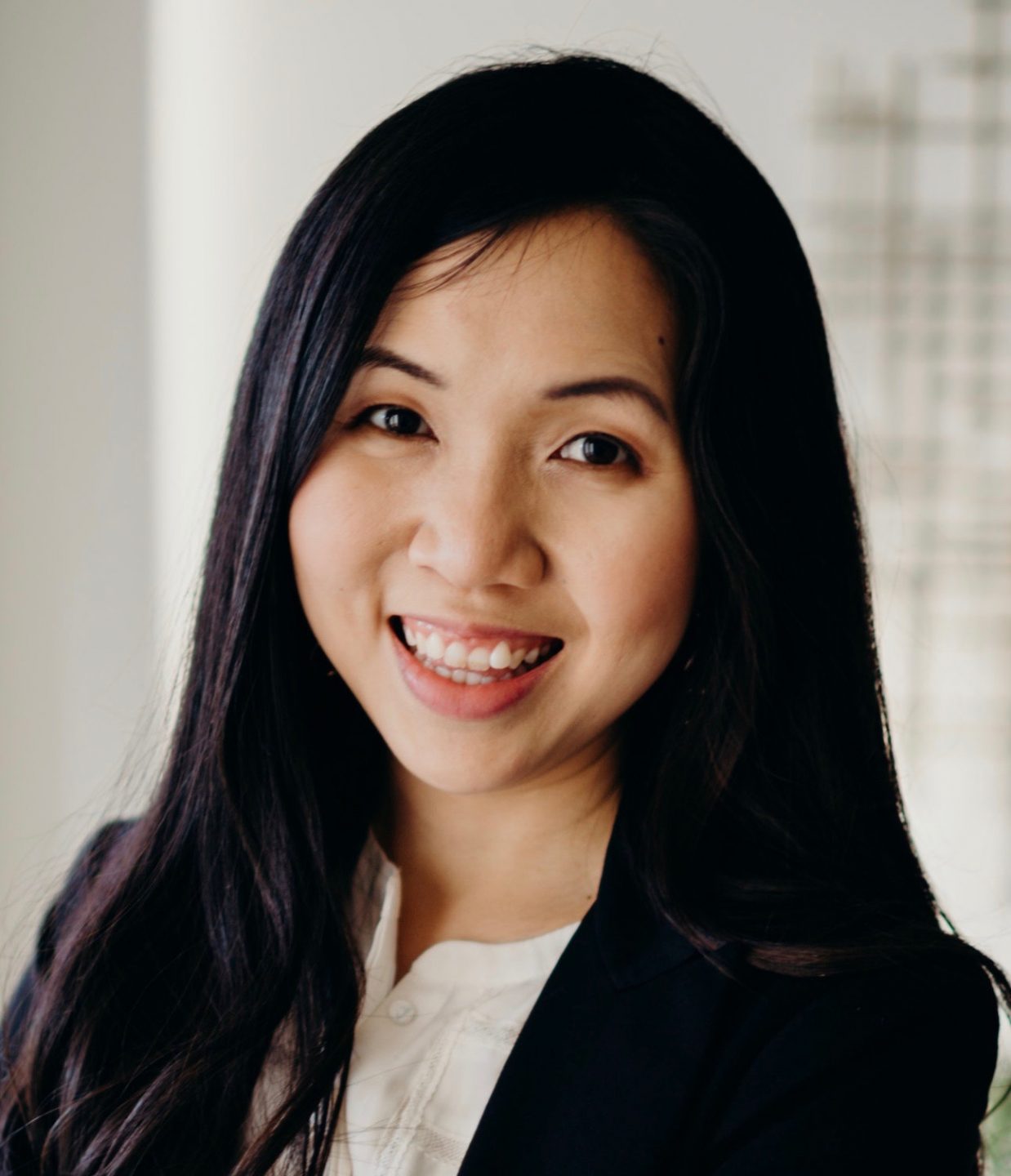What serving in Africa during the pandemic taught this doctor about sacrifice
Dr Tam Wai Jia // March 23, 2022, 4:29 pm
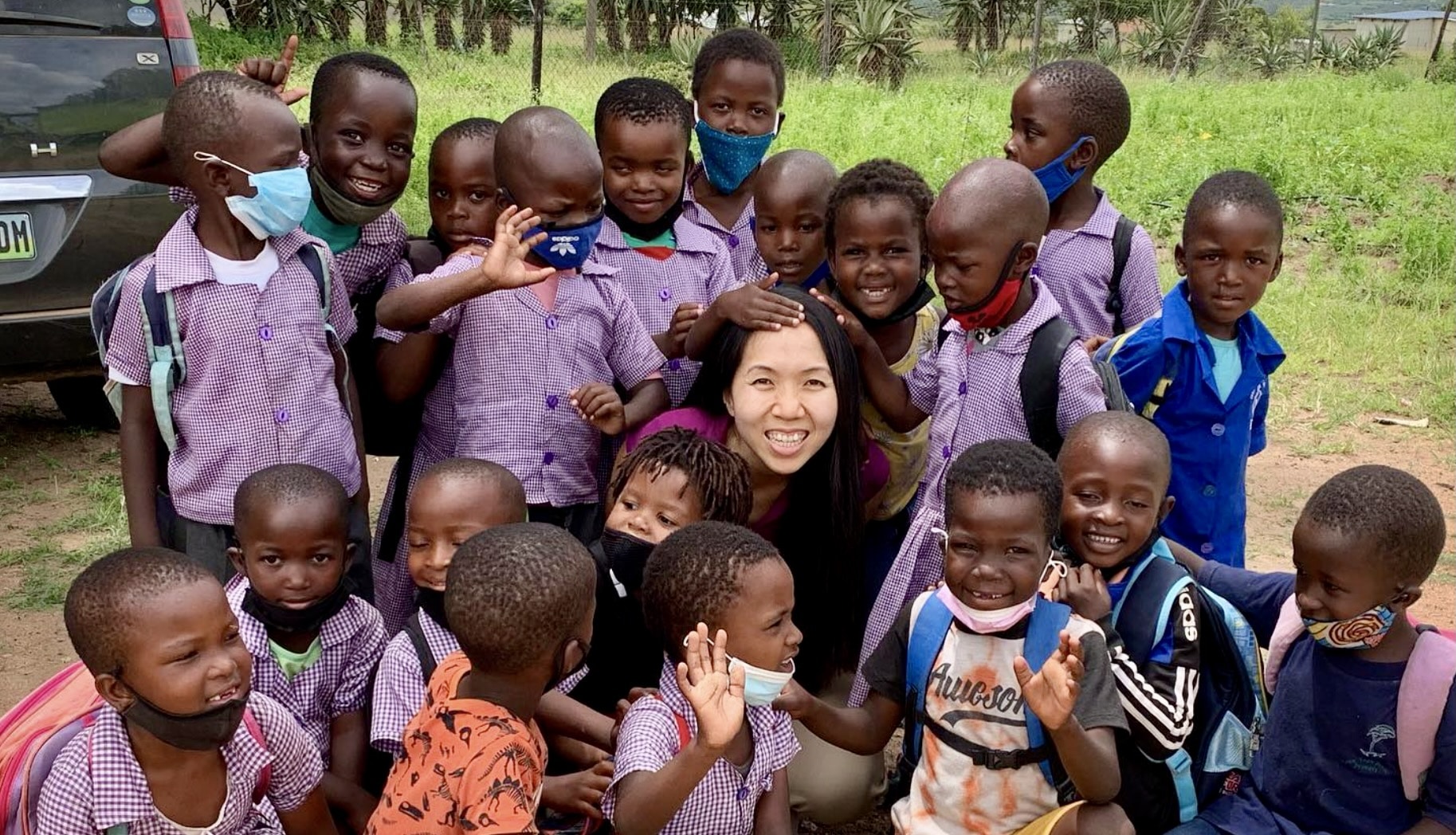
Dr Tam Wai Jia with the village children at a community health outreach in Eswatini, Africa. All photos courtesy of Dr Tam Wai Jia.
“Wow that’s a huge sacrifice.”
My heart seared.
When God invited me to be deployed as a consultant to provide humanitarian assistance in Africa via WHO/UNICEF, I had no idea where I’d be sent, what it’d be like.
“But you’ll miss Chinese New Year, your own birthday, your firstborn’s birthday, seven weeks of time with family – that’s too much of a loss, no?”
“God has given me much peace to release you. He will see our family through.”
In the weeks waiting for the big announcement, the days grew heavy with dread.
Then it came. I had less than two weeks to leave.
As I packed up, I received a text from an acquaintance who was a missions mobiliser: “I do not recommend anyone leaving his or her spouse and children behind to do His work.”
My eyes stung, smarting with hurt.
“You must go,” affirmed Cliff. “God has given me much peace to release you. He will see our family through.”

Wai Jia was separated from her husband, Cliff, and two girls, Sarah-Faith and Esther-Praise, for seven weeks while she worked in Eswatini with WHO/UNICEF during the pandemic.
A month into my mission away from home, on the morning of my birthday, my pastor sent a voice message to me that continued to speak to me in the weeks to come: “When we make sacrifices for God, He always comes back with a beautiful gift for us.”
Now that I’ve returned home, I can look back and say: Although we had mourned over the costly series of sacrifices, God turned our losses into His unthinkable gifts.
I see you
In Eswatini, the people greet one another with “Sawubona,” which means “I see you.”
It represents a seeing of one’s soul, a gifting of one’s presence to another, a recognition of a person’s value and identity. As I learned the local language, I began to sense God Himself telling me “Sawubona, I see you.”
God spoke to me, “I see you. I see your sacrifice.”
A pastor texted me one night, “This sacrifice you are giving to God is very costly, maybe more than you expected in terms of separation from your family. But it is a sweet savour unto the Lord. He is well aware.”
God spoke to me, “I see you. I see your sacrifice.”
It reminded me, that as much as the Lord was watching Abraham when He called him to sacrifice Isaac at the altar (Genesis 22), He was watching, “seeing” me, too.
“We spent many days asking God what Siswati name to give to you, Wai Jia. Names are very important here in Africa.”
The local team named me “Sibusissiwe”.
Used to describe someone who is a gift to others, it literally means “we are blessed because of you”.
Goosebumps came over me as I realised that, because I had laid myself on the altar as a sacrifice, God had turned me into a Gift for others.
The gift of identity
Yet, while they honoured my being with them as a gift, I was in turn gifted more than I would imagine.
One evening, on the way back from visiting villagers in rural villagers, I was looking at a photo taken of me in my UNICEF vest and Swazi lihiya (traditional wrap-skirt), clutching my field notes, when the words of an old prophecy came to life: “You’ll one day work with the UN to save the lives of millions of children.”
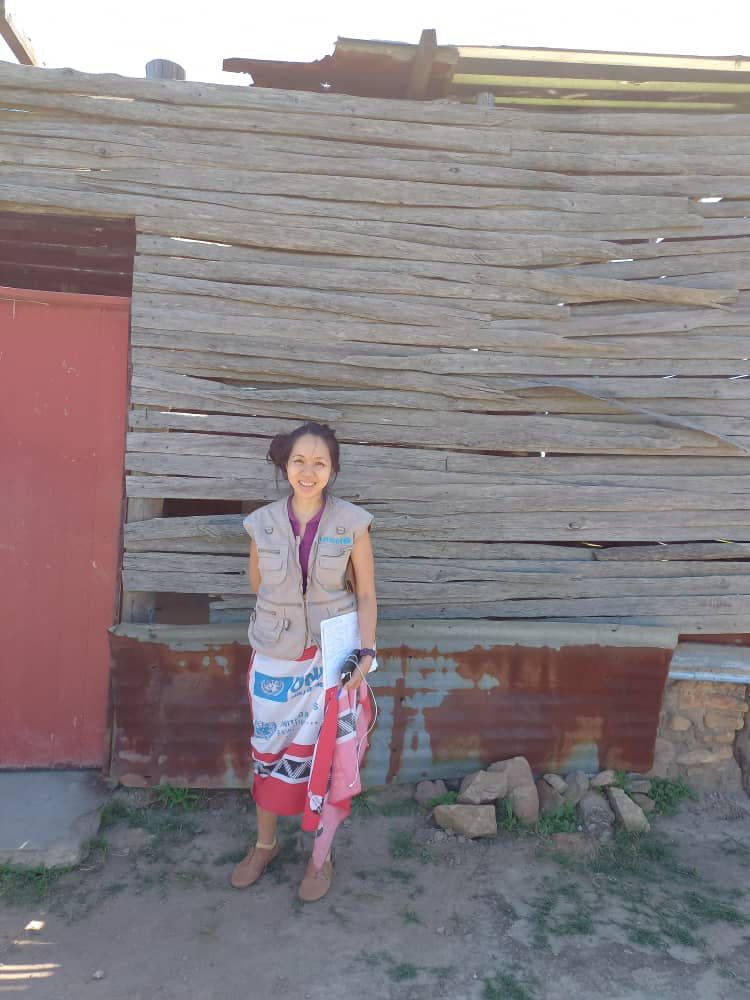
In her UNICEF vest and Swazi lihiya (traditional wrap-skirt).
Tears gushed. A misfit in medical school, I’d scraped through every exam with my gut in my mouth, never knowing if I’d pass. I struggled with depression. Even years after graduation, I watched my peers excel while I took a year to serve in Uganda. People said I’d ruined my career. The more I did medicine, the more I felt my life was a mistake.
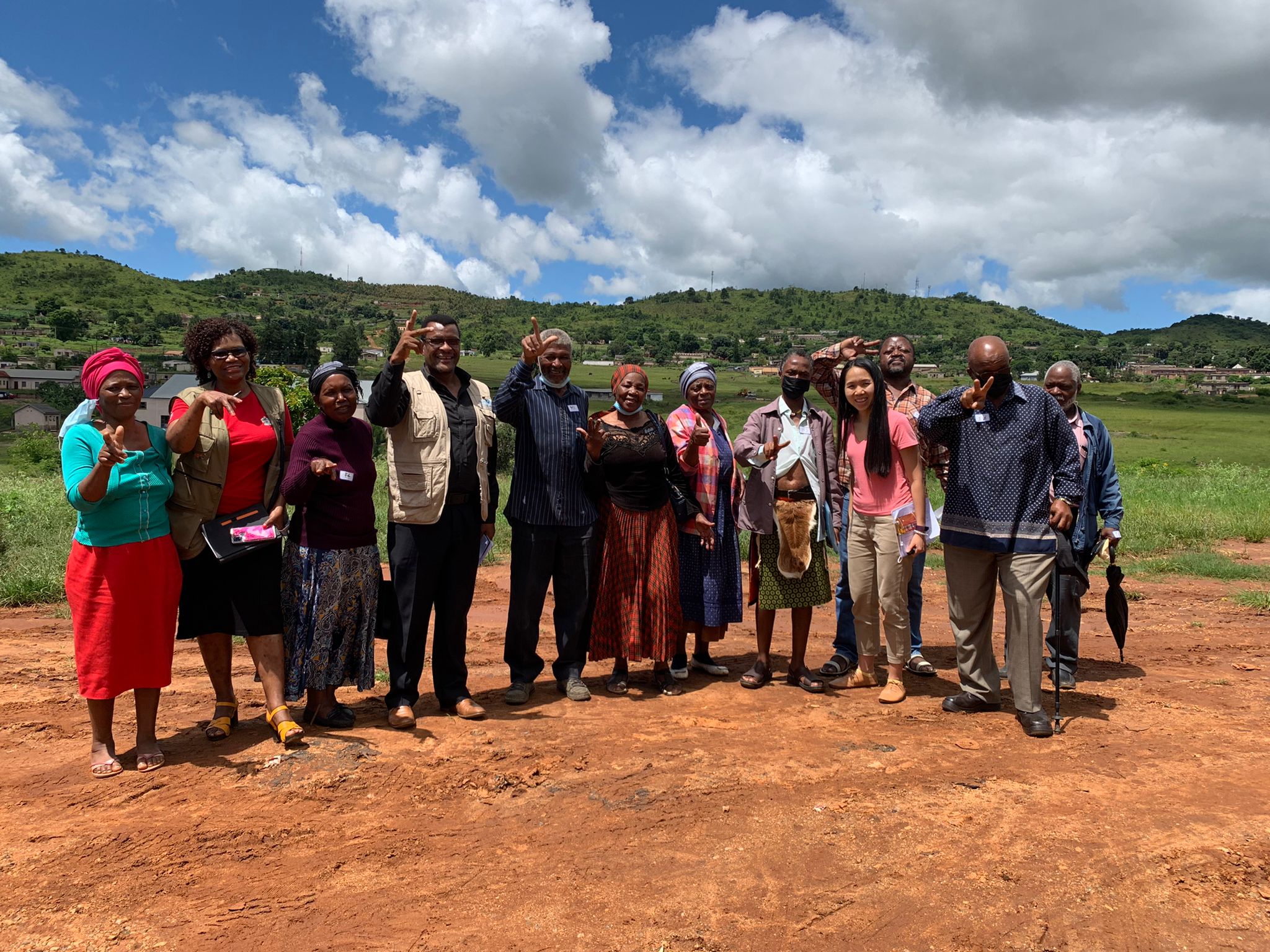
With a group of villagers and their chief (clad in animal skin, to Wai Jia’s right).
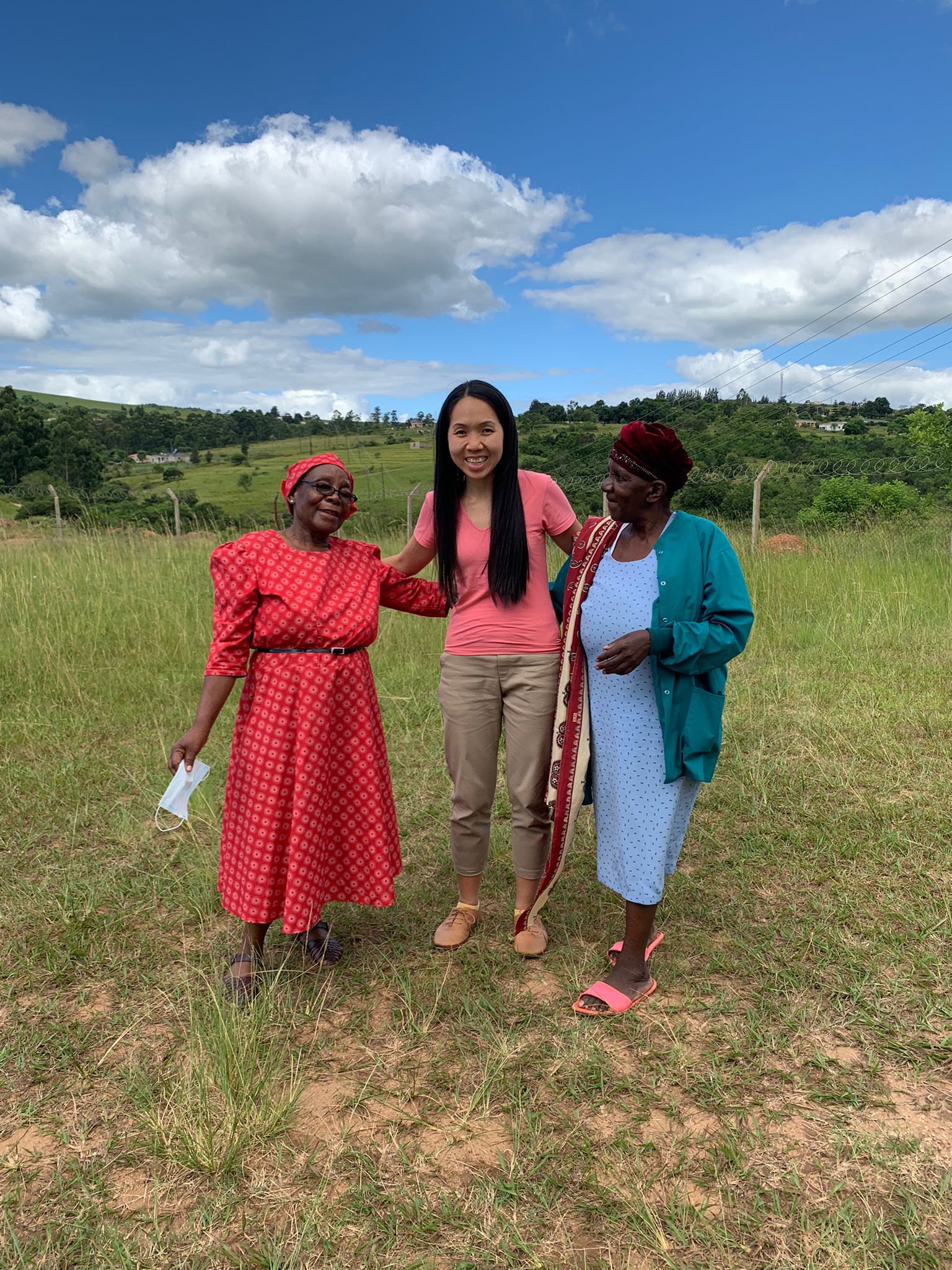
With two village grandmothers.
But one day, on the cusp of turning a year older, God re-defined my identity in Him, vocationally and intrinsically. This is who I was made to be.
My sacrifice, became God’s greatest gift back to me – the gift of identity.
Not forgotten
What nobody knew was an incredible burden I had carried in Singapore every day, so heavy that it had begun to crush me.
One evening, alone in my room, I cried – undignified and raw – to a God I thought had forgotten me.
For months, I had lost hope of keeping alive the Singapore entity of Kitesong Global, a non-profit I had started. A sponsor had not kept his word. I had a staff waiting on her salary. I could not imagine heading home to face the same painful reality. Grieved, I scrolled through old photos of the launch at Kitesong Global in America. Did that really happen?
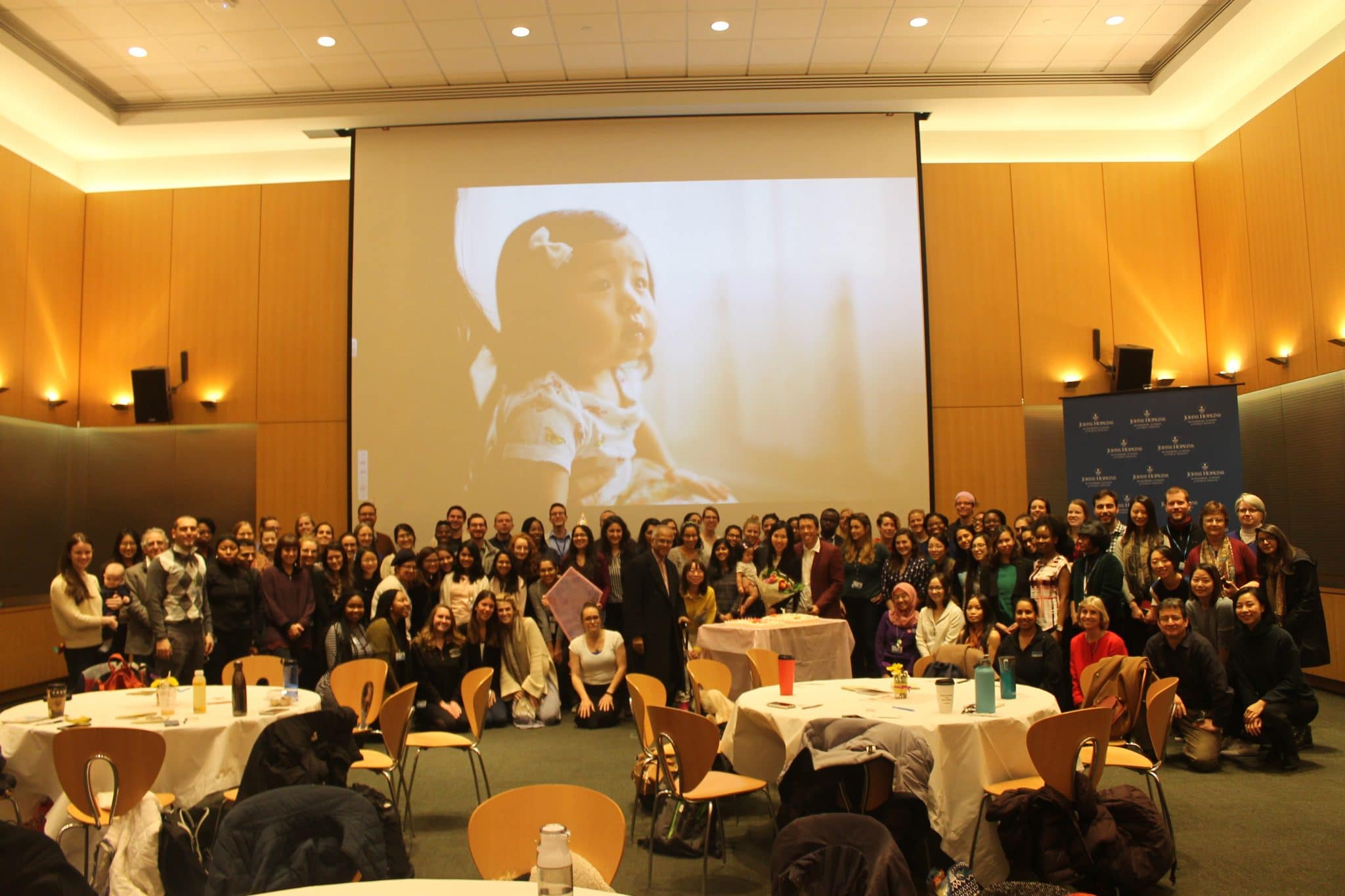
The launch of Kitesong Global, an international non-profit that aims to see every dream set free, at Johns Hopkins Bloomberg School of Public Health in 2018.
My faith felt tested beyond its limit.
My sacrifice became God’s greatest gift back to me – the gift of faith and provision.
Heaving with grief, sobbing hard, I fell into a deep slumber … awakening to find an email from a new sponsor that he would commit $20,000 to support our first staff member.
A week later, a day before my birthday, my finance volunteer wrote to me: “The sponsor’s funds will only come in a few months, but I checked today and, miraculously, there’s now already $20,000 sitting in the account from other people.”
Tears streamed down my cheeks.
If God could raise $40,000 which was half of our budget, He could do the rest, surely.
My sacrifice became God’s greatest gift back to me – the gift of faith and provision.
Birthday present
The night before my birthday, I received a phonecall.
“Are you ready to train tomorrow?”
“This is my gift to you – for you to function and flourish in the fullness of the giftings I gave to you on the day you were born.”
“What?”
“Can you train 80 rural heath motivators from the various villages?”
I was stunned. This was nothing short of a miracle. For days, my local colleagues had laboured to gain the support of community leaders for the re-training and re-deployment of community health workers to help increase vaccination rates in the most rural of communities.
Of all days, the training was arranged to be on my birthday itself.
I felt God speak to me that morning: “This is my gift to you – for you to function and flourish in the fullness of the giftings I gave to you on the day you were born.”
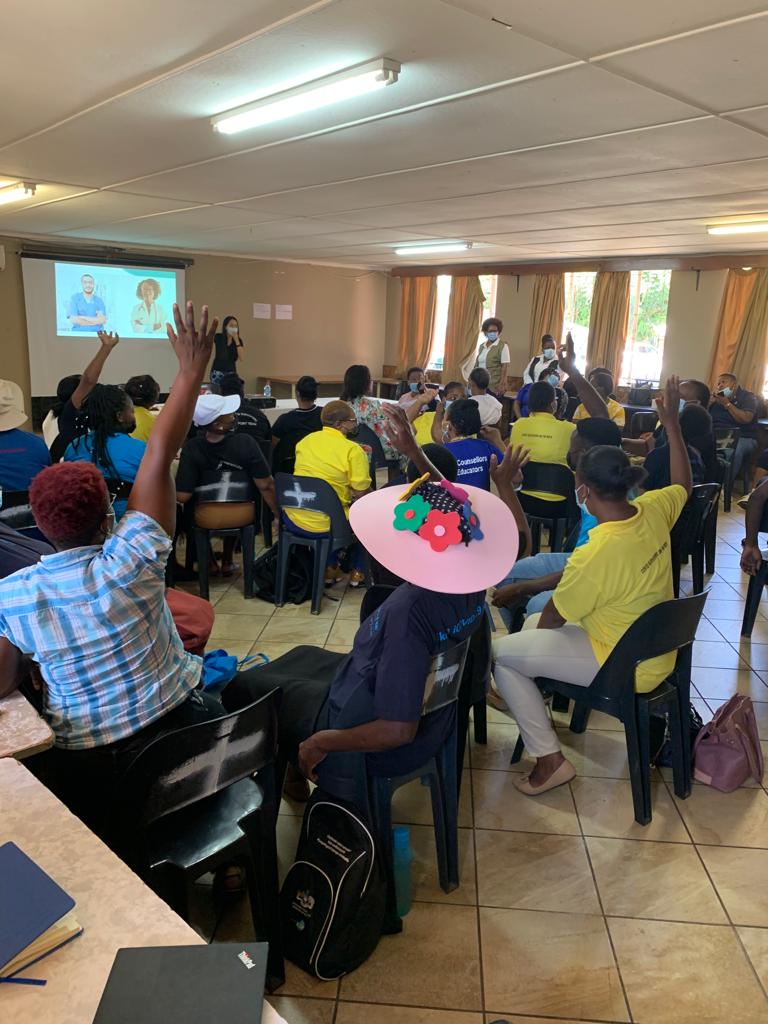
Wai Jia training 80 rural health motivators on conducting health and vaccine-related conversations in their villages.
My pastor’s words rang back to me: “When we make sacrifices for God, He always comes back with a beautiful gift for us.”
Unbeknownst to me, my team lead had also planned a birthday surprise. I gasped aloud as the largest, most beautiful custom-made birthday cake I’d ever received arrived. On it, the Eswatini flag and my Siswati name.
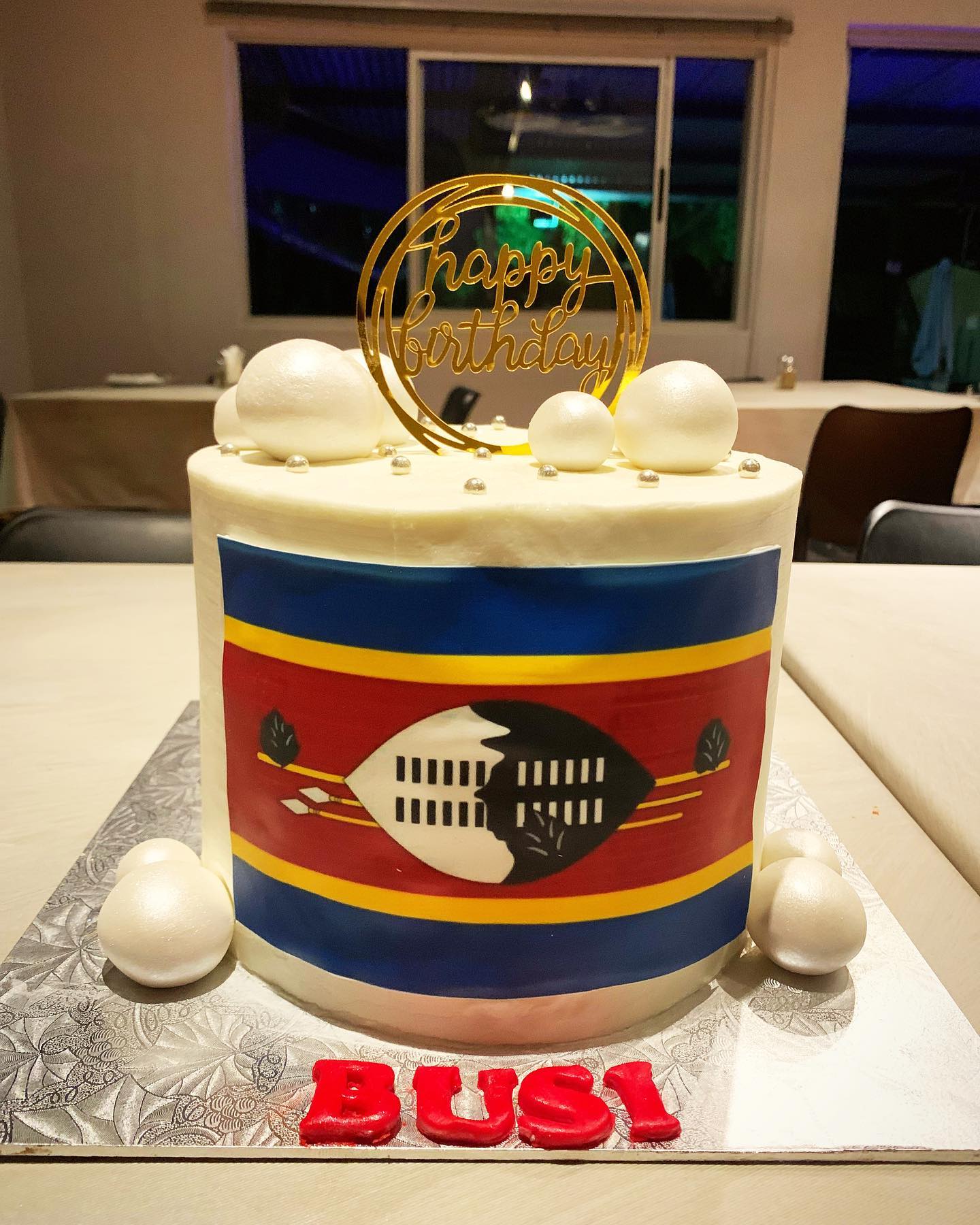
A birthday cake with the Eswatini flag and Wai Jia’s Siswati name given by the locals. “Busi”, short for Sibusissiwe, means “we are blessed because of you”.
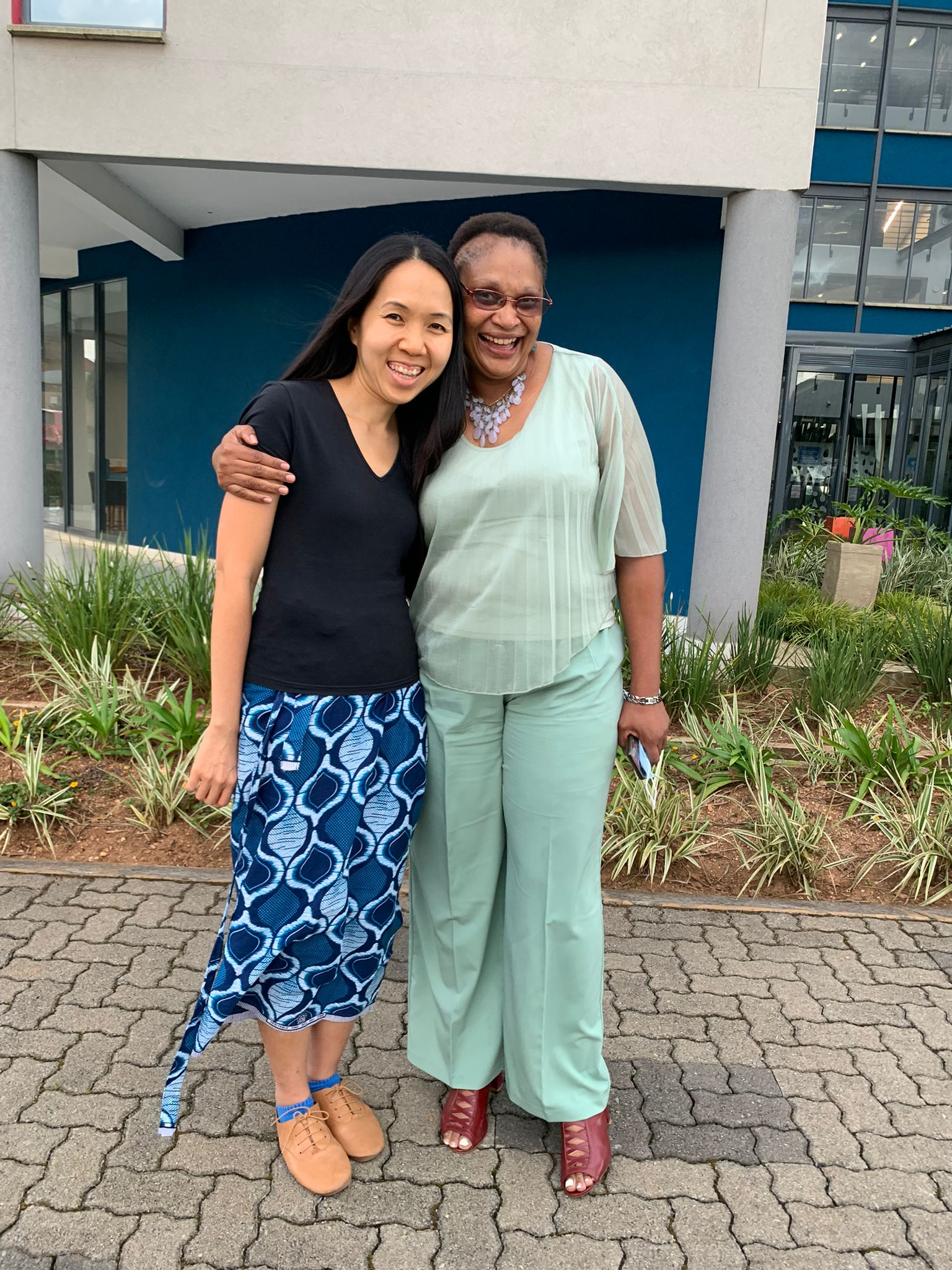
Team lead, Make Noni (pronounced as “Mah-gay”, meaning Mother), who grew to become Wai Jia’s caring Eswatini mother.
A day before my departure, my team lead drove to where I lived to say goodbye. Unable to drive off, she sobbed in the car, saying “I just realised this is the last time I’ll be saying goodbye to you. This is grief, I feel, to lose something dear to me.”
My sacrifice became my greatest gift – the gift of love.
Our Father’s heart
Before I left, as the local team threw a surprise farewell for me, tying the yellow traditional lihiya on me, I saw tears in people’s eyes.
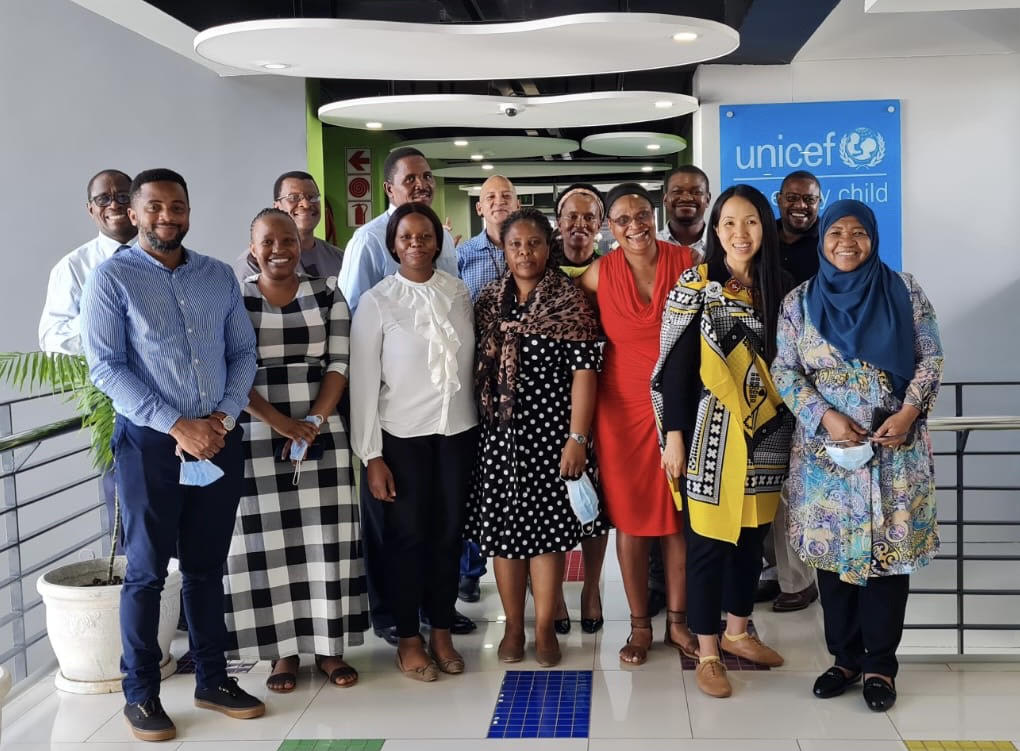
A farewell photo with her Eswatini team.
I stood up and shared that, although everyone lamented what a costly sacrifice this would be, God showed me that when your sacrifice is done in obedience, what you perceived as loss turns into the biggest gift back to you.
Just before leaving Eswatini, I stared at a text I received in disbelief, mouth open.
What uncanny timing.
All the way from home, my neighbour in Singapore, completely unaware that it was my final day in Africa, sent me a photo of our flower bed in the community garden below our block.
There in full bloom was the sunflower my girls had planted as a seed just before I’d left.
At once, I had goosebumps.
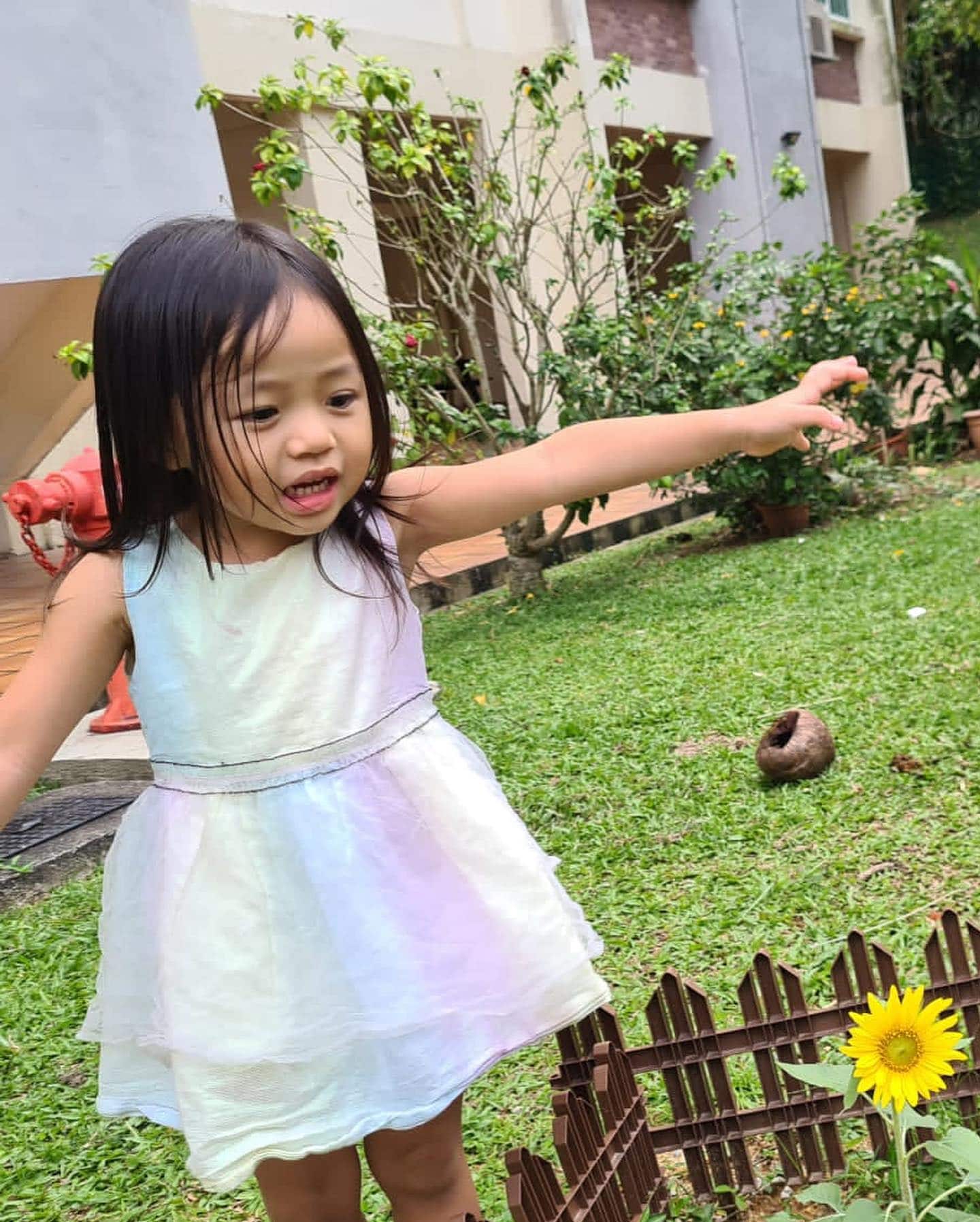
Esther-Praise with the sunflower the family grew before Wai Jia left for Africa.
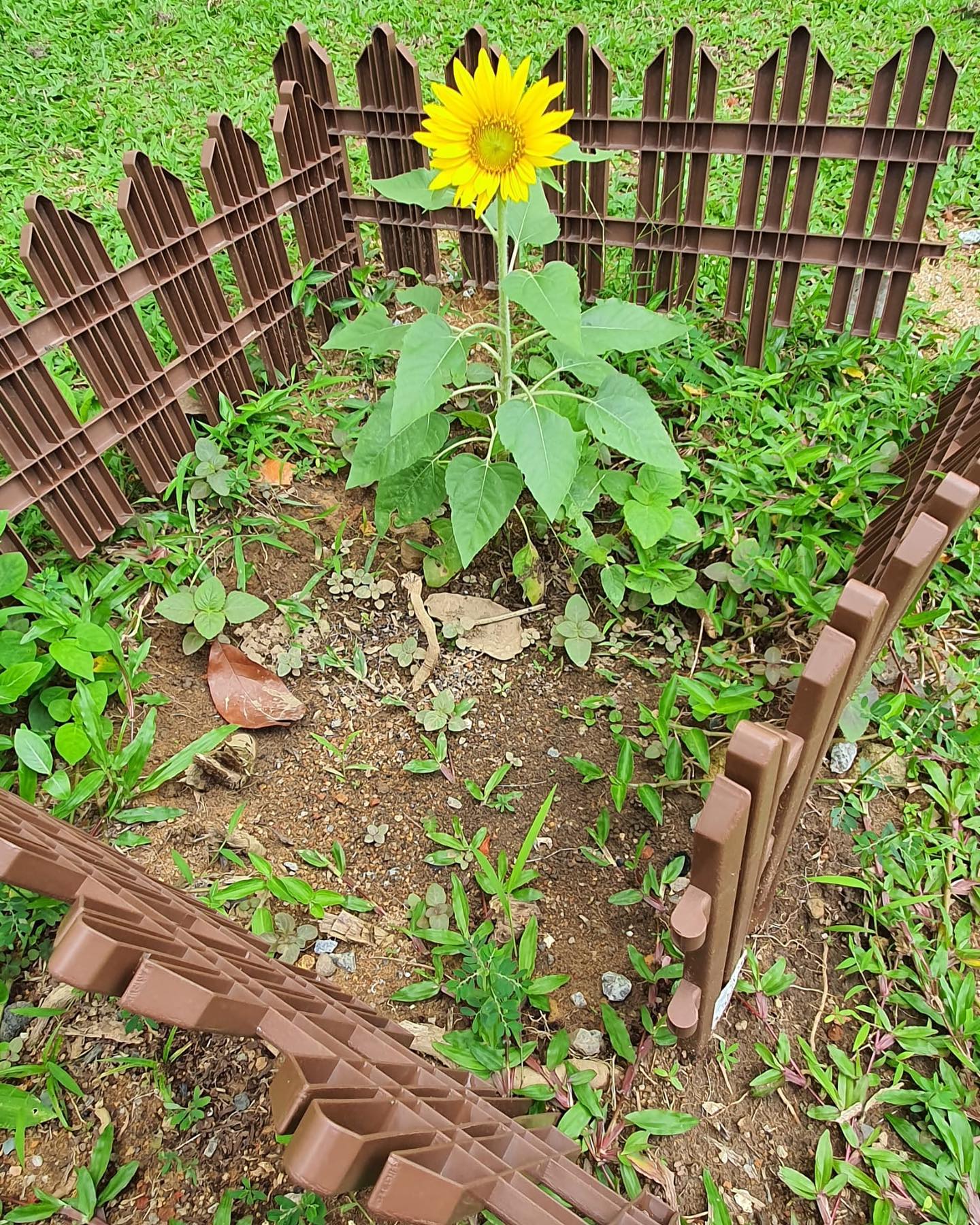
“Through the timely blossoming of our sunflower, God showed our entire family His glorious fruit from our sacrifice, His visible glory from our invisible, inward growth,” said Wai Jia.
This was no coincidence, but God’s divine timing, and His way of reminding us, showing us, that what we had sown in tears as a family, we now reaped with joy.
Through the timely blossoming of our sunflower, God showed our entire family, His glorious fruit from our sacrifice, His visible glory from our invisible, inward growth.
If you’re struggling to lay something dear to you down to God, remember this: There is no sacrifice too costly if He asks it of us.
For when we lay what is so dear to us at the altar, as Abraham did Isaac, He turns our tears to joy, our failings to breakthrough and our losses into gifts of identity, faith, provision and love. The biggest gift of all? The gift of His Father’s heart.
RELATED STORIES:
Novel Coronavirus: China’s pastors go digital to spur flock on to faith and prayer
A picture of a sitting toilet confirmed this couple’s call to missions
We are an independent, non-profit organisation that relies on the generosity of our readers, such as yourself, to continue serving the kingdom. Every dollar donated goes directly back into our editorial coverage.
Would you consider partnering with us in our kingdom work by supporting us financially, either as a one-off donation, or a recurring pledge?
Support Salt&Light